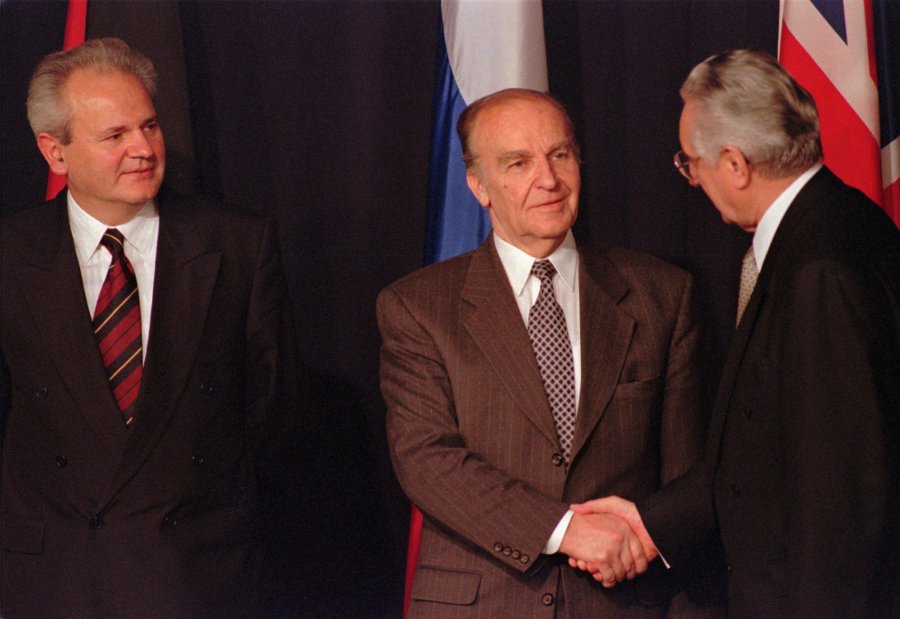
UPDATE: Today marks the 30th anniversary of the Dayton Accords, a pivotal moment that brought an end to the brutal war in Bosnia. This conflict, which erupted in the early 1990s, was the most devastating in Europe since World War II, claiming over 100,000 lives and displacing millions.
The Dayton Accords, officially signed on November 21, 1995, by leaders of Bosnia, Croatia, and Serbia, were the result of intense U.S.-led diplomacy and marked a crucial turning point in the region’s history. As we reflect on this historic agreement, the implications of its success resonate strongly in today’s geopolitical landscape.
Why This Matters NOW: The anniversary serves as a reminder of the fragility of peace. Current tensions in the Balkans highlight the need for continued international cooperation and vigilance. The United Nations and NATO remain active in the region, emphasizing the importance of upholding the principles set forth in Dayton to prevent a resurgence of conflict.
In recent statements, officials have reiterated the significance of the Dayton Accords in fostering stability.
“The Accords not only ended a war but also laid the groundwork for future cooperation and peace,”
said a representative from the U.S. State Department. This sentiment underscores the ongoing relevance of the agreement in promoting dialogue and reconciliation among the diverse communities in Bosnia.
As we observe this anniversary, it is crucial to highlight the human impact of the accords. Survivors of the conflict and their families continue to grapple with the scars of war. Many communities are still healing, striving for unity and a shared future. The resilience of the Bosnian people serves as a testament to the enduring hope for peace.
What’s Next: In light of this anniversary, international leaders are urged to recommit to the principles of the Dayton Accords. Upcoming discussions at the United Nations will focus on strategies to sustain peace and support development in Bosnia. As global attention turns to this anniversary, it presents an opportunity for renewed dialogue and support for the region.
Stay tuned for updates and insights as we continue to monitor the reflections and implications stemming from this historic agreement. The lessons learned from the past remain critical as the world looks toward a more peaceful future.





